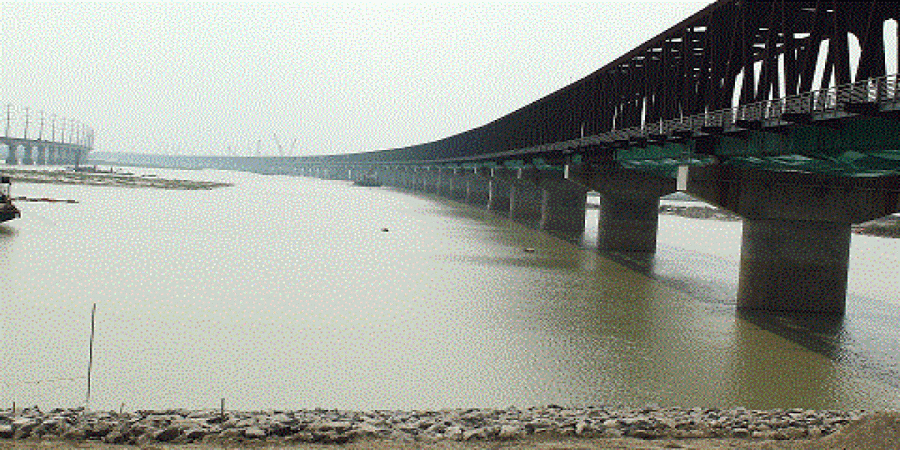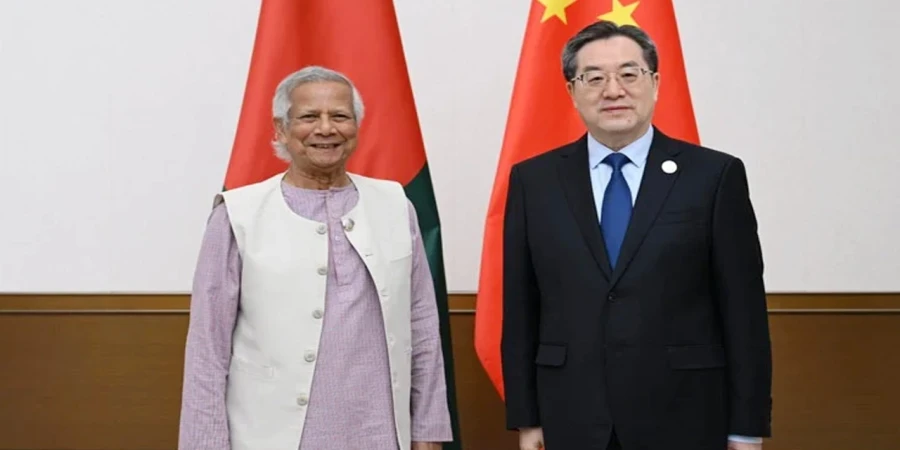
ছবি: The construction of the country's longest railway bridge over the Jamuna River has been 100% completed.
The construction of the Bangabandhu Sheikh Mujib Railway Bridge over the Jamuna River, the longest rail bridge in Bangladesh, is now fully completed. With its 100% physical infrastructure in place, the bridge is poised to revolutionize rail communication between Dhaka and the northern and western regions of the country. Trial train operations are scheduled for late November, with an official inauguration planned for mid-January 2025. Once operational, this state-of-the-art dual-gauge double-track bridge is expected to bring significant improvements to travel time and rail efficiency.
Since the opening of the Jamuna Multipurpose Bridge in 1998, rail connectivity between Dhaka and the northwest has relied heavily on the structure. However, cracks detected in 2008 necessitated a reduction in train speeds, causing delays and operational inefficiencies. Currently, around 38 trains cross the existing bridge daily at a speed of just 20 km/h, taking over 30 minutes for the journey. The new rail bridge, located 300 meters upstream of the existing structure, will allow trains to operate at speeds between 100 and 120 km/h, enabling them to cross the 4.8-kilometer span in just five minutes.
The bridge was constructed by a joint venture of two Japanese companies, OTG and IHI Corporation, which divided the work between the eastern and western sections. It features a robust steel infrastructure, designed to accommodate both passenger and freight trains with enhanced safety and efficiency. The project also includes the construction of 13 kilometers of new railway tracks on both sides of the bridge, which have already been completed.
Despite the successful completion of the bridge's physical structure, some challenges remain. A planned computer-based interlocking signaling system (CBIS) for the stations at both ends of the bridge faced delays due to complexities in importing equipment from India. As a result, full-speed operations may take an additional two months after the bridge opens. Once installed, the CBIS will ensure seamless train operations and maximum safety across the new rail line.
Another adjustment to the original project plan was the cancellation of a proposed museum construction. This decision resulted in a budget surplus of 500 million Bangladeshi Taka, which will be returned to the government.
The project's original budget was set at BDT 9,734 crore, but an extension of the timeline led to a revised cost of BDT 16,781 crore. Of this, 72.4% was funded through a loan from the Japan International Cooperation Agency (JICA), with the remaining 27.6% covered by domestic financing. The bridge’s construction began following the project's approval by the Executive Committee of the National Economic Council (ECNEC) in December 2016. Prime Minister Sheikh Hasina inaugurated the construction work virtually in November 2020, and the first pilings were completed in March 2021.
The completion of this bridge is expected to bring a transformative impact on Bangladesh’s railway system. Currently, congestion and delays caused by the slow movement of trains over the existing Jamuna Multipurpose Bridge disrupt schedules and frustrate passengers. With the new bridge, travel time will be significantly reduced, making train journeys faster and more reliable. This is particularly beneficial for long-distance travelers and cargo operators, as freight trains will also be able to cross the river more efficiently.
According to project director Al Fattah Masudur Rahman, the new bridge will save time and reduce passenger inconvenience. He stated that smoother operations and higher speeds will enable trains to cross the river swiftly, eliminating bottlenecks and improving overall railway performance.
As Bangladesh continues to modernize its infrastructure, the Bangabandhu Sheikh Mujib Railway Bridge represents a significant step forward. The enhanced connectivity it offers will not only facilitate passenger movement but also boost trade and commerce by improving freight logistics.
The government aims to open the bridge for all train operations by January 2025, marking a new chapter in the country’s transportation history. With its completion, travelers can look forward to a safer, faster, and more efficient railway system, bridging regions and fostering national development.
While full-speed operations may take a few more months to achieve, the promise of this advanced infrastructure ensures long-term benefits for the people and the economy.
repoter






